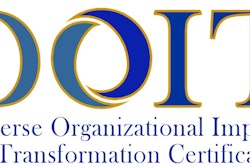At the 1993 annual conference of minority recipients of the Ford
Foundation’s Fellowship Fund for doctoral candidates and graduates, Dr.
Bai Akridge asked this question of the participants: “If we’ve agreed
that this program is so important to us, why aren’t we doing something
to help ourselves, too?”
Two years later, Akridge and other former fellows answered that
question by establishing the Ford Fellows Fund to raise money to
increase the number of doctoral fellowships the foundation awards to
minorities each year. Since 1980, 1,323 minorities have received Ford
Foundation Fellowships with the largest number, 42 percent, going to
African Americans.
Akridge said, “We [former fellows] agreed that it’s so important
what [the Ford Foundation is] doing and that we should own part of it
ourselves by giving money.”
Akridge, a program director for international telecommunications
policy at IBM in Washington, D.C., volunteers time, year round, as the
chair of the Ford Fellows Fund. During the two years that it has been
in existence, solicitations from former Ford Fellows, corporations, and
matching funds from the Ford Foundation have resulted in enough money
to fund two $18,000 awards to minorities at the dissertation stage of
their doctoral studies.
The Ford Foundation’s Dissertation Fellowship program is one of
three awards set up specifically for Alaskan Natives, African
Americans, Mexican Americans/Chicanos, Native American Indians, Native
Pacific Islanders and Puerto Ricans. The other programs are Ford’s
Predoctoral and Postdoctoral awards. For three years, Predoctoral
recipients, those just starting to work on their Ph.D., receive an
annual stipend of $14,000 for living expenses and their tuition is
waived. Postdoctoral fellows, recent Ph.D. recipients, are given a one
year, $25,000 stipend and additional funds for travel and research on
an approved topic.
These three programs were established in order to increase the
number of minorities with Ph.D. credentials at higher education
institutions in areas where they have historically been
under-represented. Graduate students pursuing a Ph.D. in disciplines
where minorities have earned a large number of doctorate degrees – such
as education, social work, and medicine – are not eligible for the
program. Although the Ford Foundation is not strict in its requirement
that fellows teach when they complete the program, 90 percent do pursue
teaching or research positions at universities and colleges.
Akridge, who was a 1992 Postdoctoral Fellow studying political
science at the University of Wisconsin, said, “The bedrock of this
whole thing is the individual dollars the fellows give. That’s the most
important piece of this fund.”





















